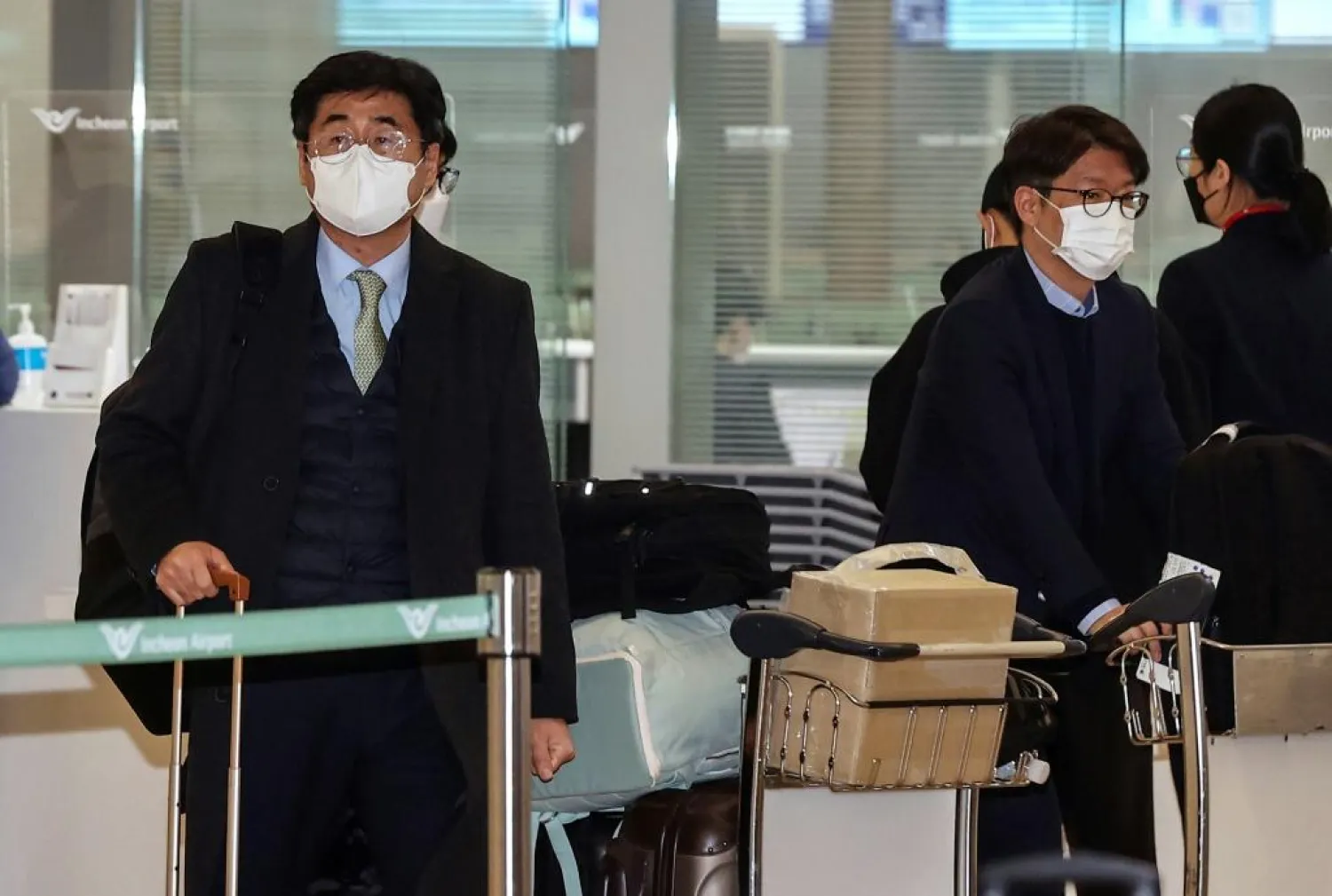A South Korean delegation left for Iran on Thursday to negotiate the early release of an oil tanker and its crew seized in strategic Gulf waters this week.
Iran's Revolutionary Guards said Monday it had seized the South Korean-flagged Hankuk Chemi -- which it said was carrying 7,200 tons of "oil chemical products" -- for infringing maritime environmental laws.
The Guards said the arrested crew were from South Korea, Indonesia, Vietnam, and Myanmar.
The South Korean delegation, led by the director-general of the foreign ministry's Middle Eastern affairs department, boarded a plane early Thursday and was set to arrive in Tehran via Doha.
"I plan to meet my counterpart at the Iranian foreign ministry and will meet others through various routes if it will help efforts to resolve the issue of the ship's seizure," said Koh Kyung-sok, the chief delegate, before boarding the plane.
Iran's seizure of the tanker came after Tehran had urged Seoul to release billions of dollars of Iranian assets frozen in South Korea under US sanctions.
Iran was a key oil supplier to resource-poor South Korea until Washington's rules blocked the purchases.
South Korea's vice foreign minister is due to travel to Tehran next week to discuss the frozen assets, a visit that Seoul said would go ahead despite the seizure.
According to Iran's central bank governor Abdolnasser Hemmati, the country has "$7 billion of deposits in South Korea" that can neither "be transferred nor do we get any returns on, while they ask us for the costs" of holding the funds.
The incident was the first seizure of a major vessel by the Iranian navy in more than a year.
In July 2019, the Guards seized the British-flagged oil tanker Stena Impero in the sensitive Strait of Hormuz for allegedly ramming a fishing boat and released it two months later.
It was at the time widely seen as a tit-for-tat move after authorities in the British overseas territory of Gibraltar detained an Iranian tanker and later released it over US objections.
Tehran denied the two cases were related.
The Guards seized at least six other ships in 2019 over alleged fuel smuggling.









